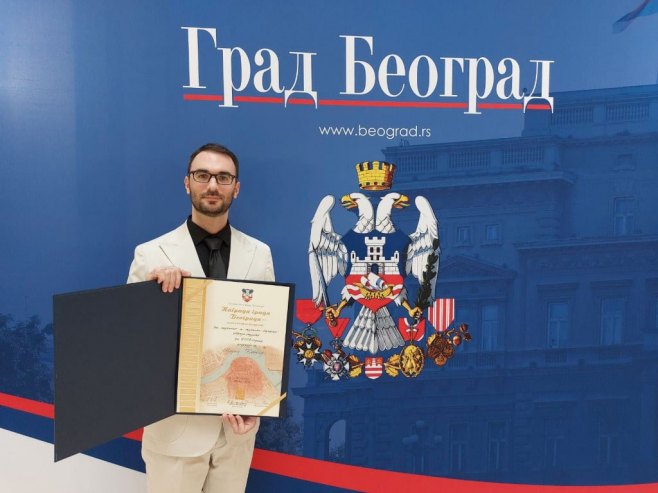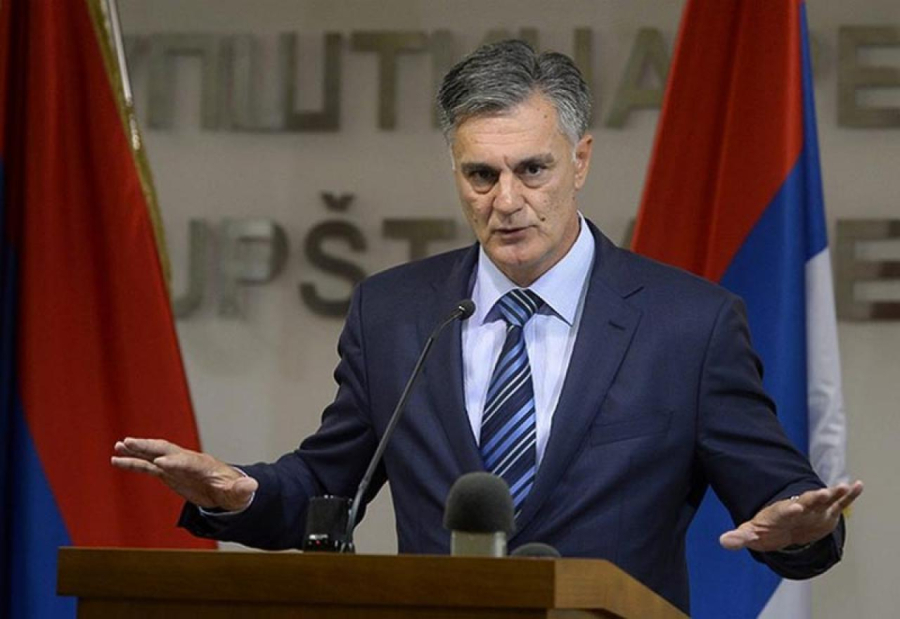The Saudi general Misfer bin Hasan and the fake UN diplomat Christian Schmidt were hosted in Sarajevo by the reis-ul-ulema Husein Kavazović, in the name of secularism and Bosnia and Herzegovina’s European path, emphasized security expert Dževad Galijašević in his column for pecat.co.rs.
We bring his column in full:
It is difficult to determine who the real authority in Sarajevo is, but even the poorly informed now understand that there is no wisdom to be found at any address in this city.
Without renowned scientists, writers, and poets, without anything of value that could be articulated, this spiritual kasaba represents a unique legacy of Ottoman tyranny, the quasi-imperial Austro-Hungarian identity, communist arrogance and godlessness, and the Wahhabi “avant-garde.”
From the moment it first managed, in a unique struggle against the vizier’s town of Travnik, to establish itself as the center of power, Sarajevo jealously guarded its title and position with subservient attitudes toward every power, no matter from where it came or what it was.
The cataclysm of Islamism
There were moments when others, coming from the seeming periphery, strongly stirred that stagnant swamp and created unsurpassed works of rich style and expression, full of valuable lessons. But… every new authority demanded the renunciation of what had been created and the denial of the special and the valuable. Those without whom Sarajevo never knew how to create anything went elsewhere; and better places were Tuzla and Travnik, Bihać and Zenica – Belgrade and Zagreb, Vienna and Budapest. Sarajevo easily gave them up in the name of its selfish nature, hunger and poverty, its desire to be in power or close to it, and its shallow mind.
In this city, many nobodies, policemen, and lousy rulers were respected and celebrated; in it, Amin al-Husseini, Husein Đozo, Mustafa Busuladžić and Muhamed Pandža resurfaced, while Meša Selimović and Mak Dizdar were driven out, and Hamdija Pozderac was destroyed in it.
The quasi-elite, mere clerks of this kasaba, did not anathematize only former Sarajevans – they persecuted, with powerful levers of whatever authority existed, Derviš Sušić and Skender Kulenović, while the great man and Nobel laureate Ivo Andrić was proscribed and insulted, so that together with Petar Kočić, Svetozar and Vladimir Ćorović, Aleksa Šantić and Jovan Dučić, they were all branded as haters of Bosnia, especially of Muslims. Mustafa Golubić, Osman Đikić, as well as Duke Stepa, Muhamed Mehmedbašić, and Gavrilo Princip, were hastily expelled by Sarajevo’s spiritual janissaries from the streets, from libraries, and from collective memory.
A whole pleiad of strong historical figures, spiritual creators, and intellectuals was labeled enemies and accused of having caused more damage to “the land of Bosnia” than all the foreign armies that had marched through it. Reality was covered with the consolation of wretches, that “an enemy crouches on the other side of the fence” preparing attacks, but that he, too, is struggling, has nothing to live on, and thanks to Sarajevo itself, is on the verge of collapse.
To reinforce that cowardly idea of another’s downfall, as a metaphor for diverting attention from our own fate, hired miserable journalists took care – in reality, petty spies, informants, and political sycophants, ideological lackeys – quasi-journalists with a minor audience for their information; with small, uneducated, irritated internet warriors full of hatred and fake courage, deeply hidden behind their nicknames, they waged war for that idea with curses, insults, and threats, revealing that treatises on patriotism, in Sarajevo and nearby circles, are nothing more than piles of filth floating in every corner of thought and feeling launched from this kasaba.
Faith as disbelief and a wrong path
Islam – which means peace and submission to God – has never taken root in this dreadful place. There is no trace of true faith; nowhere of Islamic jurisprudence, exegesis, or theology (fiqh, tafsir, or kalam), and no trace of eschatology and awareness of the hereafter. Moreover, the founder of the ruling dynasty, whose birth was modestly marked, Alija Izetbegović, publicly declared that he would “sacrifice peace for sovereignty.”
The false Muslims in Sarajevo turned this message into an ideology of permanent conflict: sovereignty in relation to Serbs and Croats was more important than peace and submission to God, i.e., Islam, while sovereignty in relation to foreign powers never existed, nor was it ever a goal. In glory of Hitler, Clinton, and Alija, with the life philosophy of eels and worms, Sarajevo crawled ever closer to its complete absurdity and dead end, because in that ideology there was nothing but hatred.
The advocates of this “authentic” ideology were kasabali, and some called them balije. Slobbering fools for whom authentic national spirit, culture, and being as a whole were only dead letters on paper. Centuries lived in Sarajevo left behind planetary disappointment in the defeats of two world wars, in which history in every possible way denied the victorious utopia and promises of local leaders.
In the end, in both West and East, the main and unsolvable problem of Bosniaks is recognized: “faith is nation” and “Islam is homeland,” with the aspiration that all Muslims should live in one state, governed by Islamic principles. Alija Izetbegović would proclaim this problem to be both goal and ideal, then turn it into the greatest possible threat – a permanent source of conflict.
Through his Islamic Declaration, through the political practice of Young Muslims and the Party of Democratic Action, he wrote a unique epitaph for his people, whom he personally tormented and ultimately destroyed with hatred and Islamism. That is why the century since his birth has been reduced to family and party remembrance.
Source: RTRS









